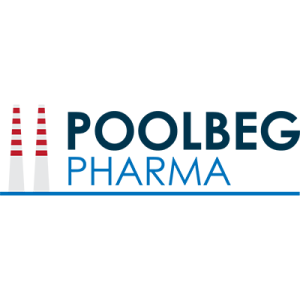The pharmaceutical sector is being redefined by a wave of digital innovation that’s cutting years off development timelines and bringing treatments to market at unprecedented speed. Investors paying attention to this transformation stand to benefit from a healthcare revolution powered by AI, big data and blockchain technologies.
The pharmaceutical industry, long burdened by decade-long development cycles and exorbitant R&D costs, is undergoing a fundamental shift. The integration of artificial intelligence, machine learning, big data analytics and blockchain is unlocking new levels of efficiency across the entire drug development pipeline. These technologies are transforming the slow, resource-heavy process into a nimble, data-driven engine capable of identifying and delivering life-saving treatments with greater precision, speed and safety.
AI is leading the charge in drug discovery, streamlining the identification of promising compounds through sophisticated algorithmic analysis. Tools like DeepMind’s AlphaFold have revolutionised protein structure prediction, while companies such as Insilico Medicine and BenevolentAI are rapidly advancing early-stage drug development using machine learning to uncover novel therapeutic pathways.
Virtual screening and predictive modelling now allow researchers to assess millions of compounds in silico, bypassing time-consuming lab work. This accelerates preclinical decisions and enables adaptive trial designs that can evolve in real-time. Platforms like Atomwise and BenevolentAI are at the forefront, matching molecules to targets and using real-world data to improve trial accuracy and efficiency.
Repurposing existing drugs has gained momentum, with AI playing a pivotal role in uncovering new indications. During the COVID-19 crisis, BenevolentAI’s technology identified baricitinib as a treatment candidate within weeks, proving how rapidly these tools can pivot in response to emerging threats.
The rise of in silico trials further demonstrates how digital twins and simulation technologies are replacing traditional human and animal testing in early stages. This not only cuts costs and time but enhances safety and efficacy modelling, paving the way for faster regulatory reviews. Regulatory bodies, including the FDA and EMA, are responding in kind by embracing blockchain for secure data tracking and compliance. With digital ledger technology, companies can ensure transparency across the supply chain and streamline the regulatory approval process.
Cloud computing and big data are also reshaping clinical research. Patient recruitment, historically a major bottleneck, is now accelerated through AI-powered analysis of health records and genomic data. Platforms like Deep 6 AI drastically reduce the time it takes to identify suitable candidates, improving both recruitment and retention. Simultaneously, wearable tech and real-time data analytics feed back into trials, generating evidence that not only meets but enhances regulatory expectations.
Personalised medicine is another high-growth frontier. As AI and genomic analysis converge, treatments can now be customised based on an individual’s genetic makeup. Companies like Tempus and Foundation Medicine are enabling oncologists to make more precise decisions, while CRISPR and AI integration is unlocking targeted therapies for rare and complex diseases. These advances offer a future where tailored treatments are not the exception but the norm, fundamentally altering the investment landscape.
Digital transformation is no longer a peripheral trend in pharma; it is the engine driving the sector forward. The convergence of AI, cloud computing, blockchain and real-world data is fast-tracking innovation, slashing costs and radically improving outcomes. For investors, this means a more agile, efficient and scalable industry poised for exponential growth. The companies harnessing these technologies are not just making better medicines—they are building the digital backbone of modern healthcare.
Poolbeg Pharma plc (LON:POLB) is a clinical stage infectious disease pharmaceutical company, with a novel capital light clinical model which enables us to develop multiple products faster and more cost effectively than the traditional biotech model.


